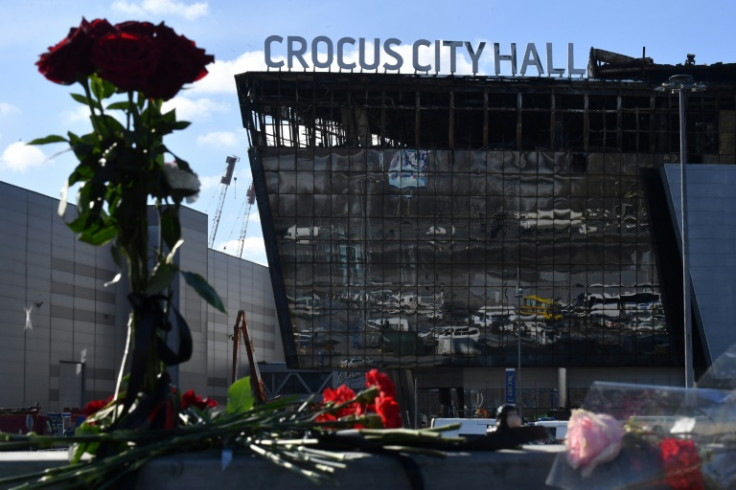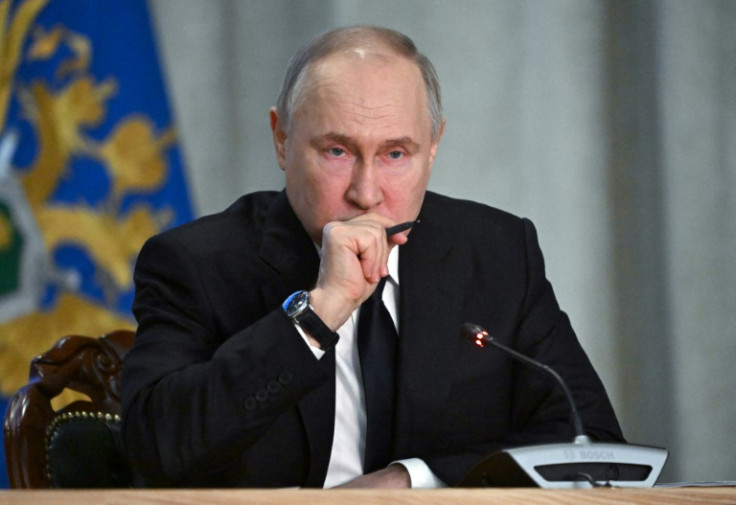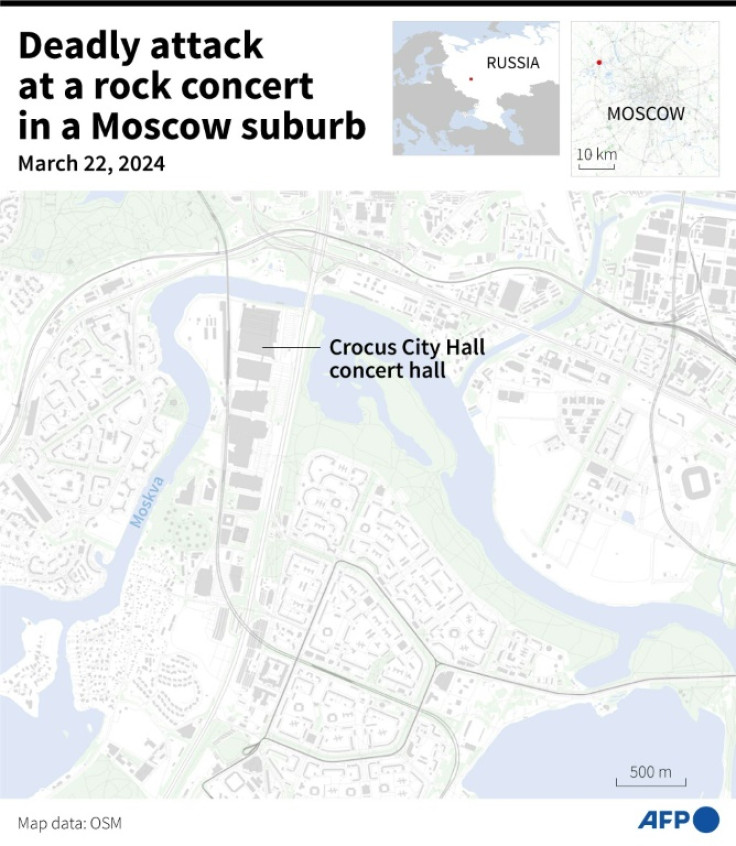
Russia on Tuesday sought to shift blame for the Moscow concert hall attack onto Ukraine and its Western backers, despite the Islamic State group claiming responsibility for the massacre of at least 139 people.
The Kremlin's security services have been scrambling to explain how gunmen on Friday managed to carry out the worst attack in Russia in over two decades.
President Vladimir Putin has acknowledged that "radical Islamists" conducted the bloody assault, but suggested they were linked to Ukraine, two years into the Kremlin's offensive on the country.
The head of Russia's FSB security agency Alexander Bortnikov said Tuesday that while those who had "ordered" the attack had not been identified, the assailants were heading to Ukraine and would have been "greeted as heroes".
"We believe the action was prepared both by the radical Islamists themselves and, of course, facilitated by Western special services, and Ukraine's special services themselves have a direct connection to this," Bortnikov was cited as saying by Russian news agencies.
Ukraine has fiercely rejected any accusations from Moscow that it was tied to the assault, with a top aide to President Volodymyr Zelensky saying the Kremlin was looking to cover up the "incompetence" of its intelligence agencies.
Russia's closest international ally, Belarusian strongman Alexander Lukashenko, appeared to undermine the Kremlin's main narrative -- saying that the attackers tried to enter his country first before heading to Ukraine.
"There was no way they could enter Belarus. They saw that. That's why they turned away and went to the section of the Ukrainian-Russian border," he said.
The Kremlin has expressed confidence in the country's powerful security agencies, despite questions swirling over how they failed to thwart the massacre after public and private warnings from the United States.
Islamic State jihadists have said several times since Friday that they were responsible, and IS-affiliated media channels have published graphic videos of the gunmen inside the venue.
French President Emmanuel Macron on Monday said Paris had information that the jihadists were responsible and warned Russia against exploiting the attack to blame Ukraine.
The concert hall massacre was a major blow for Putin just over a week after he claimed a new term after one-sided elections the Kremlin billed as an endorsement of his military operation against Ukraine.
Putin on Monday said for the first time that "radical Islamists" were behind last week's attack, but sought to tie it to Kyiv.
Without providing any evidence, Putin connected the attack at Crocus City Hall to a series of incursions into Russian territory by pro-Ukrainian sabotage groups, and said they were all part of efforts to "sow panic in our society".
A court in Moscow meanwhile on Tuesday remanded an eighth suspect in custody over the attack at the Moscow concert hall.
Moscow earlier announced it had detained 11 people in connection with the attack, which saw camouflaged gunmen storm into Crocus City Hall, open fire on concert-goers and set the building ablaze.
The court's press service said the latest suspect to be remanded was a man originally from the Central Asian country of Kyrgyzstan.
Officials said he was ordered to be held in detention until at least May 22, without detailing the exact accusations against him.
Three more suspects -- reportedly from the same family and including at least one Russian citizen -- were charged on terror-related offences on Monday.
A Turkish official said two of the Tajik suspects had travelled "freely between Russia and Turkey" ahead of the attack.
The two had both spent time in Turkey shortly before the attack and entered Russia together on the same flight from Istanbul, the official said.
All of those held in custody have been charged with terrorism and face up to life in prison.
The Kremlin has so far pushed back at suggestions the death penalty will be re-introduced after the attack.










